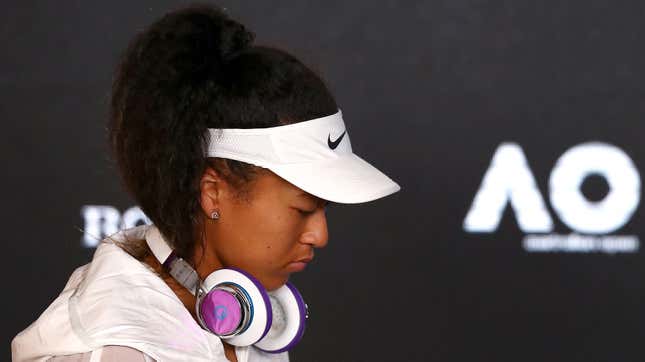Naomi Osaka Will Not Be Soothing Anyone With Tennis Today
Latest

On August 26, 2016, Colin Kaepernick, the quarterback for the NFL’s San Francisco 49ers, first took a knee while the national anthem played before his scheduled game. “I am not going to stand up to show pride in a flag for a country that oppresses Black people and people of color,” Kaepernick told reporters at the time. “To me, this is bigger than football and it would be selfish on my part to look the other way. There are bodies in the street and people getting paid leave and getting away with murder.” It was a decision that would cost him the remainder of his NFL career.
On Wednesday night, four years after a moment that changed football forever, the WNBA’s Washington Mystics, Atlanta Dream, LA Sparks, Minnesota Lynx, Phoenix Mercury, and Connecticut Sun refused to play a single minute of basketball. The NBA’s Milwaukee Bucks started the wave, opting out of their own game. The Los Angeles Lakers and Clippers voted to end the current season, in the middle of the playoffs, and LeBron James called on team owners to take more action. In a turn that will shake the tennis world, Naomi Osaka, the highest-paid female athlete ever, sat out of the semi-finals of the Western & Southern Open. Each person who chose to strike, to risk their livelihoods, to put endorsements and contract renewals on the line, did it to protest the shooting of Jacob Blake, who was shot seven times by police officers in front of his children in Kenosha, Wisconsin.
-

-

-

-

-

-

-

-

-

-

-

-

-

-

-

-

-

-

-

-

-

-

-

-

-

-

-

-

-

-

-

-

-

-

-

-

-

-

-

-








































